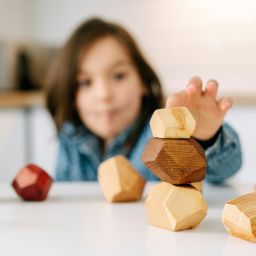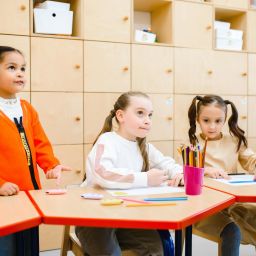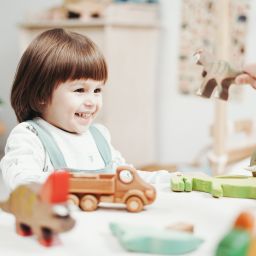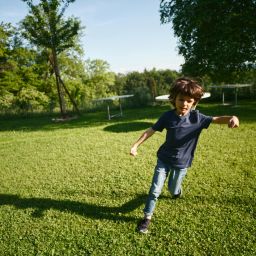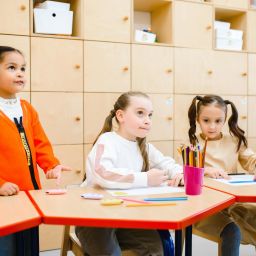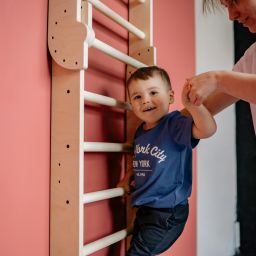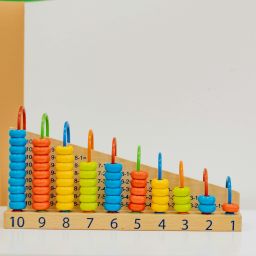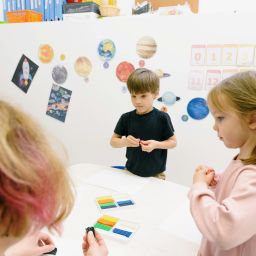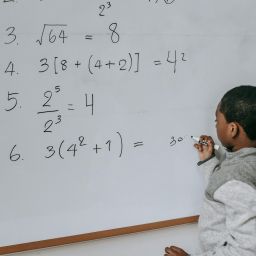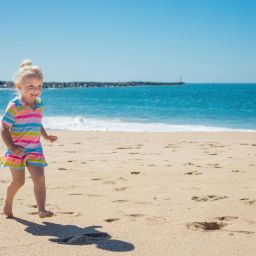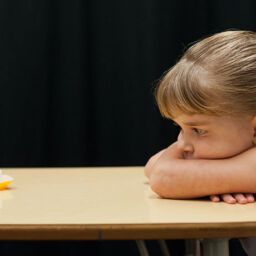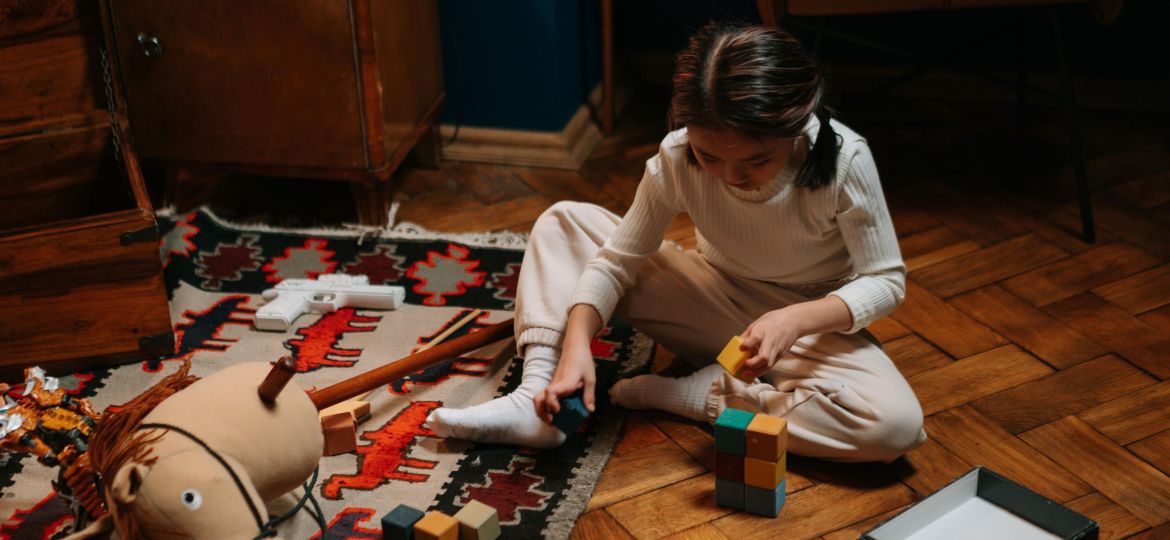
FH Summary: The post explores the evolving landscape of childhood in the digital age, highlighting the importance of play as a vital tool for learning, connection, and habit formation. It emphasizes how playful parenting, as advocated by Dr. Lawrence J. Cohen, can deepen parent-child bonds and foster essential skills through joyful challenges. By integrating insights from books like “Playful Parenting” and “Einstein Never Used Flashcards,” the post suggests practical ways to infuse play into daily routines, nurturing well-rounded individuals while maintaining a balance between structured learning and unstructured play.
In today’s rapidly evolving digital era, childhood seems to be progressively shifting from the wonder of outdoors and free play to the confines of screens. Structured schedules, early academic pressures, and a reduced emphasis on pure, unadulterated play might seem like they are creating the model child. But could they be sidelining an integral facet of childhood?
As most educational and developmental experts will tell you, play isn’t just about fun; it’s an essential vehicle for learning as well as bonding with your child. Playing games with your kids might seem like child’s play (haha), but if you delve deeper, play reveals itself as a complex tapestry of interactions, learnings, and connections. In this post, we’ll explore how the joy of play can be harnessed to fortify connections and inculcate positive First Habits in children, all underpinned by reputable research.
Playful Parenting: Unlocking Deeper Connections and Skill Building
If play is the language of children, then Playful Parenting by Dr. Lawrence J. Cohen is akin to a translator. Cohen’s work is a profound exploration into the world of play, emphasizing how it can be an invaluable tool in connecting deeply with our children and guiding their habits. Let’s dive into this book’s insights, combining it with the knowledge we’ve already amassed at First Habits about how important play can be to your child’s development.
At the heart of “Playful Parenting” is a simple yet groundbreaking idea: children communicate through play, and adults can bridge the understanding gap by joining them in this natural mode of expression. By adopting a playful approach to parenting, caregivers can form deeper connections, better understand their children’s emotional needs, and effectively guide their behavior.
Play isn’t merely about pleasing or entertaining. It’s about striking a delicate balance between joy and challenge. Dr. Cohen elaborates that while play can be accommodating, caregivers can also introduce playful challenges, promoting resilience and helping children learn crucial coping mechanisms. A child’s world is full of challenges – be it the monumental task of tying shoelaces for the first time or navigating schoolyard friendships. Introducing playful challenges mirrors these real-world tasks, making them relatable and less daunting. The playful environment becomes a safe space for trial, error, and learning. Therefore, it can be highly beneficial to organize games that progressively increase in difficulty, encouraging children to expand their boundaries. Whether it’s leveling up in a board game or solving a slightly more complicated puzzle, these challenges allow children to face adversities in a controlled, low stress environment. It sends the powerful message that while challenges are a part of life, they can be overcome with effort and persistence.
In addition to being a basis for learning and connection, play can also be therapeutic. Oftentimes, children reenact situations that were traumatic or upsetting to them. Through this repetition, they try to make sense of and master their feelings. Play can be an outlet for children to work through some of the common and fundamental emotional struggles of childhood, such as feelings of powerless and vulnerability. Effective play can serve to make sense of these emotions as well as help a child gain comfort with being the one who has power over the situation, thereby providing practice in being considerate of the needs of others and regulating themselves to ensure they aren’t hurting their playmates. Role reversal in play is a concept that, at first glance, may seem trivial but has profound implications for child development. By switching roles, children, who often feel dwarfed by the enormity of the world around them, get a chance to wield power, make decisions, and lead. This reversal is not merely about power dynamics but about understanding, empathy, and perspective-taking. When children assume roles of authority or control, they’re not just playing – they’re processing. They process their understanding of power, their experiences with authority figures, and their own feelings of empowerment or helplessness.
The lessons from Playful Parenting offer a fresh lens to view play, not as a mere pastime but as a dynamic, multi-dimensional tool for child development. It’s a delicate dance of joy, challenge, power, and vulnerability. As caregivers, recognizing these nuances and actively incorporating them into you child’s daily routine, can pave the way for children who are not only joyous and imaginative but also resilient, empathetic, and empowered.
So how can we best put these ideas to use as key First Habits for your child to learn? Let’s visit another excellent book below and then tie these ideas together into some actionable steps.
Demystifying the “Superkid” Syndrome
As parents, it’s easy to get lured into the race of pushing our children to achieve more, learn more, and grow faster. This desire often births the concept of the ”superkid” – a child prodigy achieving milestones at an accelerated rate. But at what cost?
Einstein Never Used Flashcards compels us to rethink this approach. The book brings to light that learning is most effective when it’s organic, meaning driven by curiosity and play. This is not about dismissing academic rigor but rather understanding that the early years are foundational, and your child’s development depends on a mix of exploration, mistakes, growth, and discovery.
It’s a proud moment when your child reads before their peers or solves mathematical problems while others are still grappling with basics. But the accelerated achievement of these milestones sometimes means bypassing the natural rhythms of childhood. Children’s brains are wired for exploration. Every touch, taste, and sound is a lesson. When we accelerate learning past its organic limit, we inadvertently curtail this exploration. As highlighted in Einstein Never Used Flashcards, genuine comprehension often takes time and is rooted in real-world experiences. Therefore, celebrate your child’s achievements, but also cherish their moments of wonder, especially during their daily moments of play and exploration. The world is their classroom – let the rustling leaves teach them about wind, shadows introduce the concept of light, and playground disputes educate them about conflict resolution.
At times, modern education can unfortunately undermine the value of play. Yet, research, as elucidated in the Einstein Never Used Flashcards, robustly champions play as a crucial component of effective learning. While structured learning has its merits, it needs to be balanced with self-directed discovery. Real comprehension isn’t just about rote memorization but about internalizing concepts, asking questions, and seeking answers. Children have a remarkable capacity for understanding complex concepts when they discover them organically. Forcing information often leads to superficial retention.
The quest for creating “superkids” may stem from a place of love and ambition for our children, but it’s essential to pause and ponder – are we preparing them for a fulfilling life or just a resume of accelerated achievements?
Let’s dive into these concepts as actionable steps for implementing optimal First Habits in your child.
Using Play as a Tool for Habit Formation
Building habits isn’t always about discipline. Likewise, play’s application doesn’t end at learning or emotional processing; it’s a fantastic tool for habit formation. Incorporating playfulness into routines can make them more appealing and sustainable. To use a simple everyday example, if you want your child to adopt a habit of cleaning their room, make it a game. Perhaps it’s a race against time, or every item is a character that needs to “go home” to its place. This playful approach can transform mundane tasks into enjoyable routines.
As you know by know if you’ve been following First Habits, the sole purpose of this community is to empower you as parents in the creation and direction of the habits that your children develop. We believe that by using cutting-edge research on the science of habit formation (more on this here) and overlaying meaningful connection with your child, you can have a meaningful impact on the First Habits pillars of cognitive skill, physiological fitness, and emotional wellbeing. Let’s explore actionable ways the concept of playfulness in connection can positively influence habit building in these areas.
1. Gamifying Routines: Why not turn daily tasks into fun activities? This is more than a distraction. It’s a way of encoding habits in a joyful framework, ensuring that they stick. Both Einstein Never Used Flashcards and Playful Parenting have cited instances where turning chores or learning activities into games resulted in better engagement and retention. For example, you can turn new First Habits you are implementing into a creative song, a race to the finish, or a role reversal where the child is directing you in the activity as you follow along. This approach is more likely to make it something they look forward to doing each day and adds an element of anticipation to how today’s routine will play out, while, at the same time, maintaining the fundamental components to move key habits forward.
2. Challenges as Play: Let’s face it; no path is devoid of challenges. Instead of shielding our children, why not equip them with playful tools? In an environment that feels safe and accepting, children generally welcome new things that are slightly outside their comfort zone and require additional effort or problem solving. Certain board games, for instance, that require strategizing can subtly introduce them to real-world problem-solving. Physically demanding play like wrestling with their parent can be an excellent way to let out energy, process aggression, and learn self-control in a playful setting. Play can help lay the groundwork for future physiological and athletic performance.
3. The True Meaning of Success: It’s imperative to recalibrate our definition of success. As the authors of Einstein Never Used Flash Cards point out, maybe success is less about early reading and more about nurturing curious, emotionally balanced individuals. Research suggests that the journey to a secure attachment style, healthy processing of emotions, and skills for creating meaningful connections often come through play.
Elevating Childhood Foundations Through Play
The underlying message here is clear: childhood is an explorative journey, and play is the vehicle. It’s more than just fun; it’s a developmental tool, a language, and a bridge to understanding the world. This isn’t a novel concept but a time-tested truth reiterated by experts like Dr. Cohen, Hirsh-Pasek, and Golinkoff, the authors of Playful Parenting and Einstein Never Used Flash Cards.
At First Habits, our philosophy aligns with these revelations. We believe in the power of play and its potential to cultivate children into well-rounded individuals. Through our resources and platforms, we aim to guide parents in rediscovering the essence of play, ensuring it’s not lost in today’s fast-paced world. The key lies in striking a balance. While we advocate for play, it’s also essential to provide children with structured learning opportunities. It’s about blending play with purpose, ensuring children derive joy while they learn and grow into the First Habits that can last a lifetime.
As we embrace the teachings of Playful Parenting and Einstein Never Used Flashcards, we realize that the true essence of childhood development lies in the laughter, the games, the make-believe worlds, and the boundless explorations. In our collective endeavor to offer our children the best foundations, let us remember to let them be children, to explore, to falter, to learn, and to grow, all while basking in the joy of play.
References:
1 Cohen, L. J. (2002). Playful Parenting. Ballantine Books.
2 Hirsh-Pasek, K., & Golinkoff, R. M. (2003). Einstein Never Used Flashcards. Rodale Books.


